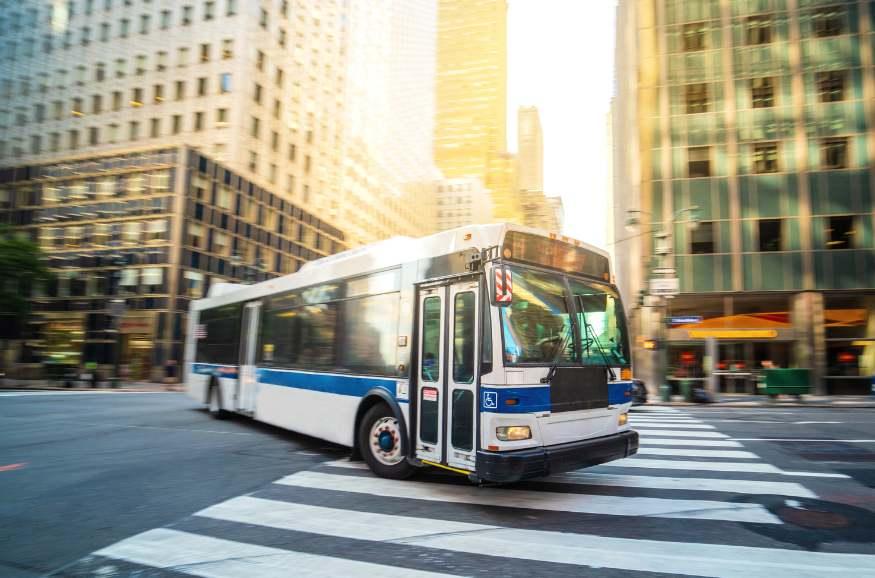At Friendly Turtle’s EcoBlog, we explore how to host outdoor events that leave lasting memories not environmental damage. From choosing the right location and managing waste, to water conservation, eco-conscious food service, and transport solutions, this guide offers practical, sustainable strategies for reducing your event’s ecological footprint. Thoughtful planning not only protects local ecosystems but also improves guest experience and cuts long-term costs. Whether you're organising a festival, fair, or private gathering, discover how to make your event greener and more responsible without compromising on impact or enjoyment.
Share your articles with us and get published! Reach out at hello@friendlyturtle.com.
Public Transport – is it the Future of Net Zero in the UK?

Transport emissions have increased steadily since 1990, despite technological advances. The transport industry is now the highest emitting sector, with car greenhouse gases the largest contributor. Given the impact of cars on our environment, do we need to change how we travel and, if so, is public transport the answer?
There has been progress with the rise in the number of electric cars, yet the Climate Change Committee (CCC), which advises the UK and devolved Governments and Parliaments on tackling and preparing for climate change, amongst others, recognises that new technology alone isn't enough. More must be done to reduce carbon emissions, which means exploring how other modes of travel beyond the car can play a part in decarbonisation.
As part of this, it is time to consider whether a car is needed for every journey and whether public transport could be used instead when possible.
According to a report by the London-based Economics Consultancy WPI Economics, commissioned by the Confederation of Passenger Transport, a modal shift from car journeys to bus and coach travel could be part of the answer to achieving net zero. The first stage of the report demonstrates not just why the change is essential but the multidimensional benefits such change brings. Further reports assess different policy interventions to show that a modal shift is achievable.
What Savings Can Be Made?
The consultants modelled three different scenarios looking at different scales of modal shift, all consistent with the CCC’s Balanced Pathway to Net Zero. The central scenario modelled an estimated 80% increase in bus usage relative to 2018/19 levels by 2050 and found that, if that could be achieved, it would make a vast contribution towards a net zero future.
- A shift to local bus use could save 15.8 million tons of CO2, a figure larger than the North East's total CO2 emissions in 2019.
- Benefits from air pollution reductions by 2050 valued at £28m, enough to pay 800 nurses for a year.
- Health benefits valued in the region of a saving of £14.9bn, which could build 33 new NHS hospitals.
Increasing bus and coach journeys also offers many passengers a more immediate and affordable way to help to get to net zero than electric cars. The financial crisis is undoubtedly delaying many in changing their cars to an electric model, yet if every person dropped just one car journey a month there could be a substantial environmental benefit. Health and well-being improvements for the nation also play an indirect part in improving our economic and ecological impact.
Public transport must be at the heart of progress towards net zero
Availability of public transportation is key, as bus and coach travel needs to be both accessible and affordable. According to the economics consultancy WPI Economics, we must change the approach to public transport to enable greater use between now and 2050, and we must act quickly.
Decision makers throughout the UK must support bus operators' commitment to decarbonising their fleet. This should be alongside more comprehensive solutions, including rewarding people for using public transport rather than their private vehicles.
When you see that a car journey from Cardiff to Manchester is responsible for around four times more CO2 emissions than a similar coach journey, this alone should be incentive enough. Yet, this modal shift will bring more investment opportunities and improve the economic and environmental case for significant investment in zero-emission public transport.
Just one fewer journey per month by each car user by 2030, and two by 2050 will bring almost £30bn in economic benefits and approaching £15bn in health benefits. We will also be protecting the generations of the future by creating better air quality.
Public opinion supports reducing car traffic and using buses and shared transport wherever possible. People can see the benefits of reduced traffic to minimise congestion, especially in inner cities, and the improved health and well-being benefits walking to the bus stop brings.
Indirect benefit studies by KPMG have shown that concessionary travel for disabled and older passengers brings a return in health benefits of 66p for every £1 invested. Road accidents would be reduced, urban road noise reduction measures would be less necessary, and greater physical activity could enable significant cost savings we should not underestimate.
Conclusion
There are success stories in rural and urban areas that prove adequate investment encourages bus usage. However, Great Britain has the lowest average passenger numbers compared to our international peers, so there is plenty of room for improvement.
Getting bus and coach occupancy up - by increasing the number of trips we all make on this mode of transport - is vital in unlocking the potential decarbonisation benefits public transport in the UK. As more cars are taken off the road, those greenhouse gases that make up the largest chunk of emissions from the transport sector will start to fall.
0 comments
Let customers speak for us
Blog posts
At Friendly Turtle’s EcoBlog, we explore natural ways to manage arthritis and improve daily life without relying solely on medication. From maintaining a healthy weight to embracing low-impact exercise and an anti-inflammatory diet, these gentle yet effective habits can reduce pain and support joint health. Quality sleep, often overlooked, is also essential in relieving discomfort and promoting healing. This guide offers practical, natural tips for easing arthritis symptoms while working in harmony with medical advice. With a balanced approach and a mindset of wellness, life with arthritis can become more manageable and hopeful.
At Friendly Turtle’s EcoBlog, we believe that enjoying the great outdoors goes hand-in-hand with protecting it. Whether it’s a peaceful walk, a weekend of camping, or a coastal escape, sustainable outdoor living allows us to connect with nature while preserving it for others. This guide explores simple, effective ways to reduce your environmental impact like using eco-friendly gear, cooking responsibly, conserving water, and following Leave No Trace principles. Each conscious choice helps safeguard the natural world. Through EcoBlog, we aim to inspire thoughtful adventures that give back to the planet, one trip at a time.



